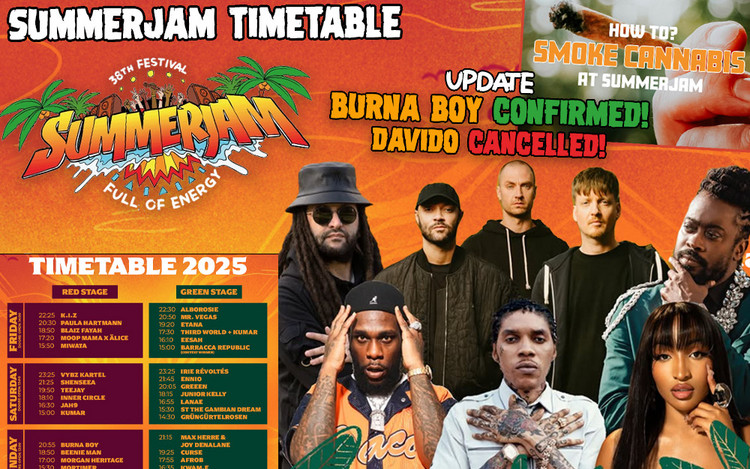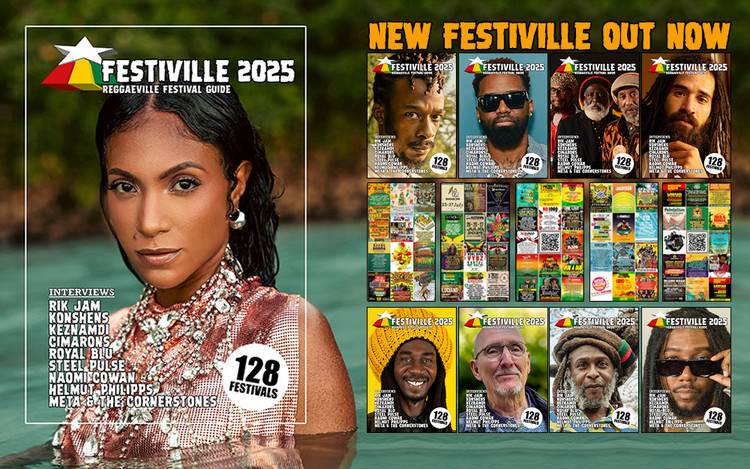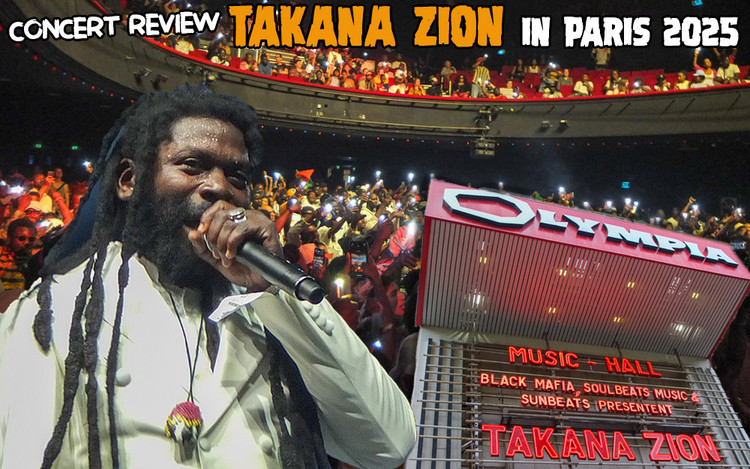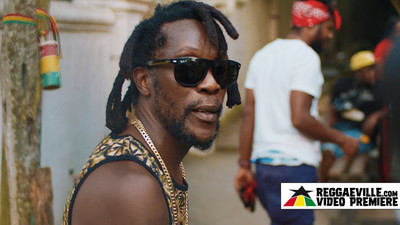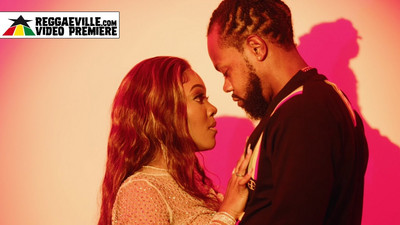Rebelution ADD
Interview with Eric Rachmany from Rebelution
06/24/2014 by Justine Amadori Ketola
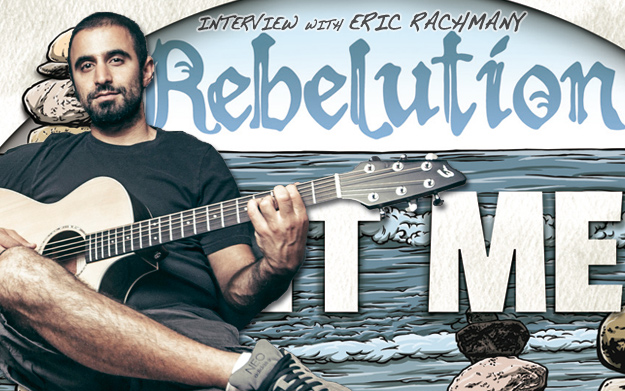
Rebelution has released their fifth album, Count Me In on their own 87 Music label in partnership with Easy Star Records. Reggaeville connected with lead singer and songwriter Eric Rachmany as the band was beginning their U.S. summer tour.
Your success is built independently and you have formed this great system of cooperation that has actually been highlighted in the album concept as Count Me In…how has the band done it, have you turned down major label deals? What was the process you have gone through to continue being indie with your label 87 Music?
Definitely that option was there, to look at major labels. You know, it was always kind of red flag, the major record labels just because of our history as an independent band for ten years, we have done everything ourselves. If we were to jump into a major record label it would be something completely new. For us, the more I thought about it, the more I just knew that staying independent was the right call. We want to own our own music and we don’t want to do multi-album deals. Not to mention these major record labels have been taking advantage of artists for years and it’s no secret. So unless it was a deal that was completely catered to what we wanted, that’s really the only way I can see it happening. All in all we decided to keep it independent and team up with a label called Easy Star Records. The big reason why we went that way was that we’ve known those guys for years. The music that they put out is conscious music. That means a lot more to us than anything else because we support that and we want to put out positive music just like the other bands on that label. Not to mention they are very experienced with the kind of reggae sounding bands that are on their label so they have a knack for the markets. They know how to take our sound and put it out to the world.
You are one of the few West Coast-style reggae bands that involves, particularly on this album, some of the original architects of reggae from Jamaica in the form of Errol Brown as an engineer and Don Carlos as a guest artist. The sound really shines with the work of Mr. Brown and the song “Roots Reggae Music” the duet with Don, it’s a love letter to the music and Don’s original Waterhouse/African vocal sound that you as a vocalist carry on in your own style. What is it like for you to craft music in the footsteps of Wailers and with an artist like Don and this authenticity you are going after on this album?
You said it, Errol Brown is definitely a huge part of this album, he is a legend and just having his energy in the studio is pretty unique. I would say that he makes us feel comfortable in the studio. You know when I’m performing live I want to be comfortable, and when you are comfortable you’re able to really get into the music and I think the listeners can see that and listen to that. They want to see authenticity and you’re going to put out authentic material when you’re comfortable in the studio so, Errol made us feel comfortable. His experience and his vibe and his overall kindness and what a humble dude he is, just having him there was really important. Then you know Don Carlos is obviously my biggest influence from the reggae genre, he has the whole Waterhouse style which is something I was really drawn to when I first saw him perform live. He got me into reggae music, him alone, I had heard Bob Marley before, but I didn’t really get into reggae until I heard Don Carlos. We wrote this song called Roots Reggae Music and it is a tribute to reggae.
So compared to your last album where you partnered with several producers, this time you were there with Errol Brown for every session? Where was this album recorded?
We recorded at Inner Circle’s Circle House Studios in Miami. We also recorded in Burbank at Steakhouse Studio. 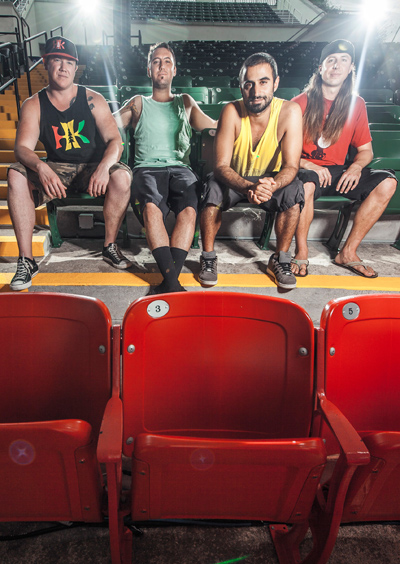 This album has a very grounded reggae feeling included is a dancehall style combination with Collie Buddz, are you aiming to bring this sound into the reggae mainstream and get some chart exposure there?
This album has a very grounded reggae feeling included is a dancehall style combination with Collie Buddz, are you aiming to bring this sound into the reggae mainstream and get some chart exposure there?
We don’t have a goal like that, we just want to put out good music, that’s pretty much what we have done with the last four albums. There’s not a goal to reach a chart or anything like that. Obviously I would be stoked to see the music reach a new audience. I think the album has a lot of different styles in it. There’s the roots reggae in there but you also have pop, a little bit of folk, a little bit of R&B on this album. I’m hopeful it will reach a new audience and that would be great. Our fans listen to a wide variety of music so I hope it gets there.
What does it mean to you to be carrying this banner as a West Coast Reggae band, a term that iTunes now uses to describe the category. Being from California and coming up in your career on the West Coast and blowing up in Hawaii, when you got your start?
I am very thrilled to be part of this movement because overall you look at the bands that are coming out in this scene. Everybody’s talking about the positive things. We’re trying to reach the audience in a positive manner and encourage these guys and we’re trying to put out good vibes. That’s something I really have learned from reggae music. The music can get to you and it can get to the soul and encourage you, that’s what it did for me. I want to do the same thing for people, where people come up to me and say, ‘You know your music got me through a tough time….I live by you guys.’ That makes me feel so good because I know that the music has power, it gets to people, it can affect people’s lives. I think that’s the number one goal that everybody really has. I am so proud of everyone that is coming up in the scene because they are actually talking about good things. I don’t think anybody is obsessed with the fame, I mean almost everyone in this movement is independent. That’s pretty special, we’re making an impact just by putting in hard work and by spreading positive messages.
Regarding the recent shooting at University of California in Santa Barbara and subsequent shootings since in Seattle and Portland that have occurred, what is you sense of how people can heal from these type of shootings, and what we can do as a society to move past this far too common occurrence?
It is very, very sad and I have always been a big supporter of changing the gun laws in this country. I know a lot people may not agree with me. We have a song called, Change The System to me the symbolic power of a gun is a very negative thing. When people think about guns, you know they are meant to kill, and I know a lot of people may disagree with me but I am a big supporter of changing the gun laws, I think it is a little too easy for people to get guns, that’s my own personal opinion. Everybody seems to have an answer to that problem. So I am not really sure exactly how to change that. I always see myself as a leader through the music and less of a political leader. I don’t really have a direct answer I suppose but I just think music is the #1 healing power. We have songs, one of our songs is Bright Side of Life because I’ve been through tough times. I lost my father at a really early age. That song is a reminder to me and other people in life to try to live well. 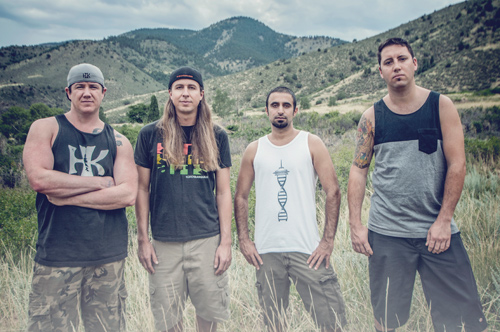 What are some highlights for you as an artist and as a band in your career?
What are some highlights for you as an artist and as a band in your career?
Definitely that whole collaboration with Don Carlos was pretty cool. Just having that as a tribute to reggae music and ultimately getting him on the song, I mean that was really cool. That’s definitely a big highlight of mine, especially on this album. You know what I think, I look online and I see people getting down with Rebelution overseas in places like Indonesia. I see a cover band, they are covering the songs that we wrote like 7-8 years ago, there’s a massive crowd of thousands of people just raging to this music. We live in a time right now where music gets spread quickly. To me right now that is the craziest thing that I think about because we’re trying so hard to get there, and it’s been just extremely difficult. We’re definitely thinking about our fans all over the world, and I know Reggaeville connects to everybody, it’s a global publication. I just want to let them know we’re trying we see everyone out there and we hope to get there soon.
What are your parting comments to the Reggaeville massive? How is your summer shaping up and fall touring season?
We have plans to do a video, the album just came out and our plan is basically to tour in support of this album, we start our summer tour today in Boston and we are going to do about 35 shows around the country and we’re hoping to get to Europe sometime this Fall, and hopefully South America sometime this Fall as well. We are going to try to do more international shows, and just keep on touring and playing music, that’s what we live for, it’s what we’ve done the past ten years, so we’re going to keep on doin’ it.




